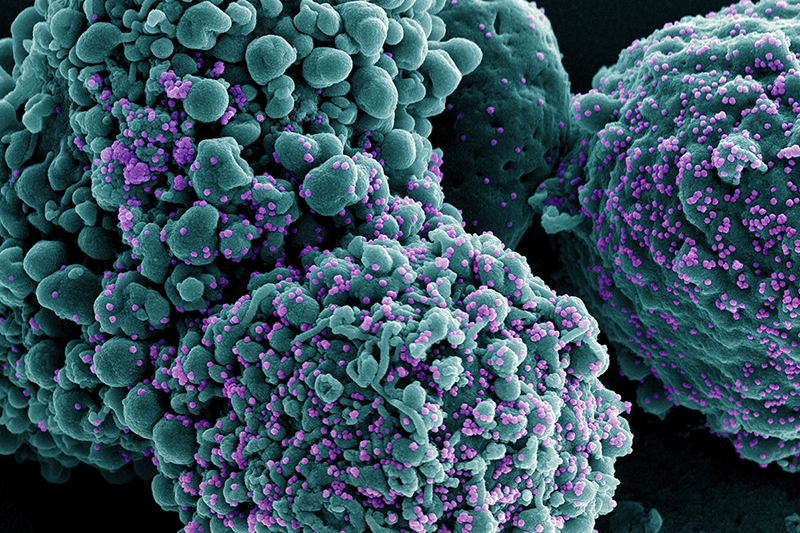
Credit: NIAID
The experimental drug TEMPOL prevents viral replication and reduces disease severity in a hamster model of COVID-19, according to a new study led by NIH’s Eunice Kennedy Shriver National Institute of Child Health and Human Development (NICHD). The findings offer a potential new antiviral treatment for SARS-CoV-2 infection and related viruses, including MERS-CoV and SARS-CoV. The study appears in iScience.
Background
Last year, NICHD researchers provided evidence that TEMPOL may be a promising antiviral treatment for COVID-19 because it impairs the activity of a viral enzyme called RNA replicase that is essential for the virus to replicate. Their initial experiments in human cell cultures showed antiviral activity and low toxicity. The new study evaluates the drug’s effectiveness in a Syrian hamster animal model, which is commonly used to study COVID-19.
Results
The researchers found that TEMPOL significantly reduced viral replication in the respiratory tract of Syrian hamsters. Hamsters treated with TEMPOL (2 hours before infection and daily over nine days) had markedly less damage to their lungs and other respiratory tissues and did not experience weight loss when compared to hamsters that received a placebo. Ten days after infection, the study team observed continued abnormalities in lung samples from the control group whereas TEMPOL-treated hamsters had minimal damage.
Significance
The findings suggest that TEMPOL is an effective antiviral that can limit lung disease in a well-characterized animal model of SARS-CoV-2 infection. Currently, researchers are evaluating the effect of TEMPOL in high-risk patients with early COVID-19, but results are not yet available.
If future research confirms that TEMPOL is an effective antiviral drug in people, it can expand treatment options for healthcare providers. TEMPOL works differently than other antivirals currently approved for COVID-19 (i.e., remdesivir, molnupiravir, and Paxlovid), and this alternative mechanism is beneficial if drug-resistant strains develop.
Reference
Maio, N et al., TEMPOL inhibits SARS-CoV-2 replication and development of lung disease in the Syrian hamster model. iScience DOI: 10.1016/j.isci.2022.105074 (2022)

 BACK TO TOP
BACK TO TOP